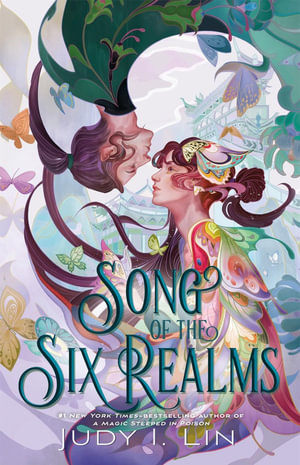Song of the six realms by Judy I. Lin

Song of the six realms is a complex novel for adolescents and young adults. The plot plays out against the backdrop of spiritual worlds and philosophical themes. It is rather a beautifully written book in terms of linguistic content, vocabulary density and also in terms of its ethereal quality. The living focus and driver of the novel is the central character -Xue'er (Guxue) meaning Solitary snow. In simplistic terms the novel is a Cinderella story but it is multilayered and complex steeped in magic and the exotic actual and spiritual realms of China.
Author Judy Lim was born in Taiwan and grew up in Canada. She loves the escapism of imaginary worlds and these she has created for readers who similarly enjoy fantasy and escapism. Her previous Book of tea duology (A magic steeped in poison and A venom dark and sweet) along with Song of the six realms have made her a bestselling author with The New York Times.
Song of the six realms is a coming of age story. It has the intimacy of the first person voice of the main character Xue whose life's story is central to the plot. Xue is an engaging, likeable character. She is beset with major losses and frightening and perplexing incidents but she has a strength and smartness about her- a feistiness and great kindness aswell as a remarkable skill with the ancient Chinese musical instrument- the qin (also known as the "seven stringed Chineses zither"). Mastery of this instrument was seen as a "refined practice" associated with poetry, scholarship and philosophy. Poetry and philosophy and Xue's ability to interpret and apply her skill are crucially important to the events in this novel. There are many references to Chinese mythology, folk religion, astrology and numerology that Lim explains have no connection with real-world practices or belief today. They have been successfully adapted for the purposes of the story creating the mood and atmosphere of the world that Xue has to negotiate and learn to understand.
Readers are challenged with the Chinese characters, the terms for these characters, their pronunciation and their meaning. There is a helpful glossary at the back of the book. There are many characters in the book with the reader being challenged to understand their name including the pronunciation and the Chinese translation. Likewise locations have place names, Chinese names and pronunciations to decipher.
There are six realms: the Mortal, the Demon, the Celestial, the Spiritual, the Ghost and the Barren. All are inhabited by different beings and have different governance structures. Mortal lives for example are governed by the Celestials and the afterlife is governed by the Demons in the Ghost realm. Through the Rite of Ascension some mortals can ascend to the Celestial Realm. Co-existence and balance is supposed to be maintained between these realms but certain seismic shifts are happening and certain beings are able to traverse across realms either saving or destroying.
Song of the six realms is structured musically and poetically with verses and interludes aswell as chapters. There is a lot of interesting fodder for the lover of fantasy, the lover of the intersection between philosophies and spiritualities, for those interested in class and governance structures and representations of good and evil. Though complex in its settings and subject matter, it is also a beautiful story of love and survival as Xue is faced with every monster and deity of the six realms as the realms teeter on the brink of disaster.
Song of the six realms is a "melodic tale inspired by Chinese mythology". It is for capable readers who enjoy the fantasy genre.
Themes: Chinese mythology, poetry, music, celestial/mortal realms.
Wendy Jeffrey